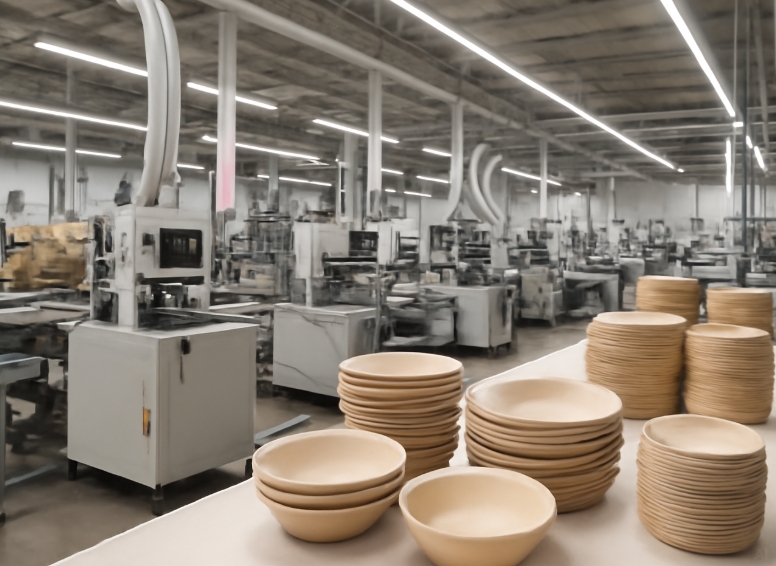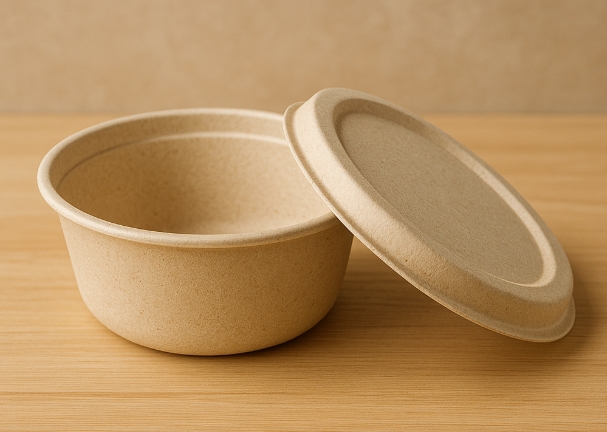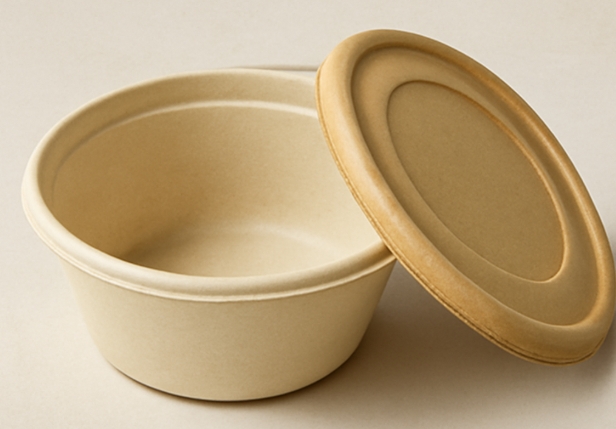
Content Menu
● The Rise of Plant Fiber Packaging
>> Why Plant Fiber?
>> Environmental Benefits
● Key Manufacturers Leading the Way
>> World Centric
>> PAPACKS
>> Zhiben Group
>> Footprint
>> Good Start Packaging
● The Manufacturing Process
>> Material Sourcing
>> Pulping and Molding
>> Quality and Safety
● Applications and Versatility
>> Food Service and Takeout
>> Retail and Ready Meals
>> Custom Packaging Solutions
● Certifications and Standards
>> Compostability
>> Food Safety
● Market Trends and Future Outlook
>> Growing Demand
>> Technological Advancements
>> Global Expansion
● Case Studies
>> Conagra and Footprint Partnership
>> World Centric's Product Line
● Challenges and Opportunities
>> Composting Infrastructure
>> Cost and Scalability
>> Consumer Education
● Conclusion
● FAQ
>> 1. What are the main plant fibers used in bowl and lid manufacturing?
>> 2. Are plant fiber bowls and lids safe for hot and cold foods?
>> 3. How should plant fiber packaging be disposed of?
>> 4. Do plant fiber bowls and lids contain harmful chemicals?
>> 5. Can plant fiber packaging be customized for branding?
Sustainability is no longer a buzzword—it's a driving force behind innovation in the packaging industry. As environmental concerns grow and regulations against single-use plastics tighten, manufacturers are turning to plant fiber materials to create compostable, eco-friendly bowls and lids. These solutions not only reduce our dependence on fossil fuels but also offer practical, high-performance alternatives for food packaging. In this comprehensive article, we will explore the leading manufacturers in this field, the science behind plant fiber materials, their environmental impact, and the future of this rapidly evolving sector.

The Rise of Plant Fiber Packaging
Why Plant Fiber?
Plant fiber materials, derived from renewable resources such as sugarcane bagasse, bamboo, wheat straw, and industrial hemp, have emerged as a sustainable answer to the mounting problem of plastic waste. These fibers are abundant, biodegradable, and can be processed into sturdy, versatile packaging products. Unlike traditional plastics, plant fiber packaging decomposes naturally, returning nutrients to the soil and reducing the burden on landfills.
Environmental Benefits
- Reduced Carbon Footprint: Plant fiber packaging has a significantly lower carbon footprint compared to plastic alternatives.
- Biodegradability and Compostability: These materials break down naturally, supporting circular economy models.
- Lower Dependency on Fossil Fuels: Plant fibers are renewable, reducing reliance on non-renewable resources.
- Safer for Consumers and the Environment: Often produced with fewer chemicals and no added PFAS, making them safer for both people and the planet.
Key Manufacturers Leading the Way
World Centric
World Centric is a well-known name in the plant fiber packaging industry, offering a wide range of compostable bowls and lids made from bamboo and unbleached plant fibers. Their products are designed for both hot and cold foods, are microwave and freezer safe, and contain no added PFAS. The company emphasizes certifications, ensuring their products meet stringent compostability standards.
Product Highlights:
- Round and square bowls (16-48 oz) with matching fiber lids
- Durable, soak-proof, and free from plastic linings
- Certified compostable in commercial facilities
- Suitable for delivery, takeout, and dine-in applications
PAPACKS
PAPACKS is a European leader in molded fiber packaging, specializing in plastic-free, food-safe solutions. Their innovative approach includes the use of virgin fiber from certified forests and industrial hemp, both rapidly renewable resources. PAPACKS also offers plant-based barrier coatings, eliminating the need for plastic while maintaining moisture and oxygen resistance.
Product Innovations:
- Customizable bowls, meal trays, fruit bowls, and snack trays
- Plant-based coatings for enhanced barrier properties
- Coffee capsules, confectionery packaging, and transport packaging
- Compliance with hygiene and quality standards
Zhiben Group
Zhiben Group is a leading manufacturer in Asia, producing a comprehensive range of plant fiber plates, bowls, and food containers. Their products are crafted from sugarcane bagasse and bamboo pulp, making them tree-free and carbon-neutral. Zhiben's offerings are fully biodegradable, compostable, and certified for food safety in multiple regions.
Key Features:
- Advanced manufacturing for high-quality, consistent products
- Oilproof, waterproof, microwave, freezer, and oven safe
- Home compostable and recyclable
- Customization available for branding and size requirements
Footprint
Footprint, a materials science technology firm, has partnered with major food brands to develop plant fiber bowls for ready-to-eat meals. Their bowls are designed to replace plastic, offering a significant reduction in carbon emissions and plastic waste. Footprint's solutions are microwave safe, non-stick, and engineered for consumer convenience.
Industry Impact:
- Used by major food brands for ready-to-eat meals
- Helped avoid millions of pounds of plastic packaging
- Cooler to the touch than plastic, enhancing user experience
Good Start Packaging
Good Start Packaging offers certified compostable fiber bowls made from surplus agricultural fibers like sugarcane and wheat straw. Their products are designed for food service businesses seeking sustainable alternatives that meet food safety guidelines and perform well with hot and cold foods.
Product Attributes:
- No added PFAS, plastic, or wax lining
- Microwave and freezer safe
- Compostable in commercial facilities within a few months
- Oil and grease resistant

The Manufacturing Process
Material Sourcing
Manufacturers source fibers from agricultural byproducts such as sugarcane bagasse, bamboo, and wheat straw. These materials are chosen for their renewability and minimal environmental impact. Industrial hemp is also gaining popularity due to its rapid growth and carbon sequestration abilities.
Pulping and Molding
The plant fibers are processed into pulp, which is then molded into the desired shapes using advanced equipment. The molding process ensures strength, durability, and the ability to withstand heat and moisture. Some manufacturers apply plant-based barrier coatings to enhance resistance to grease, oxygen, and water vapor.
Quality and Safety
Leading manufacturers adhere to international food safety and hygiene standards, ensuring their products are safe for direct food contact. Certifications such as BRCGS, ISO 9001, FDA, and compostability standards are commonly pursued to guarantee product integrity and consumer trust.
Applications and Versatility
Food Service and Takeout
Plant fiber bowls and lids are widely used in restaurants, cafes, and catering services for soups, salads, rice dishes, and more. Their durability and heat resistance make them suitable for both hot and cold foods, while their compostability aligns with the sustainability goals of modern food businesses.
Retail and Ready Meals
Brands have adopted plant fiber packaging for ready-to-eat meals, demonstrating the material's suitability for microwaveable and freezer-safe applications. Consumers benefit from packaging that is safer, cooler to the touch, and environmentally responsible.
Custom Packaging Solutions
Manufacturers offer customization options, allowing businesses to tailor packaging to specific product needs, branding, and functional requirements. This flexibility supports innovation across food, beverage, and even non-food sectors.
Certifications and Standards
Compostability
Products are typically certified compostable by reputable organizations. These certifications ensure that the packaging will break down in commercial composting facilities within a specified timeframe, supporting waste diversion and soil health.
Food Safety
Compliance with food safety standards is essential. Manufacturers test for the absence of harmful chemicals, such as PFAS, PFOA, and fluoride, ensuring products are safe for consumers and the environment.
Market Trends and Future Outlook
Growing Demand
The demand for plant fiber bowls and lids is expected to continue rising as consumers and businesses prioritize sustainability. Legislative bans on single-use plastics and increased awareness of environmental issues are driving this growth.
Technological Advancements
Ongoing research and development are leading to improved barrier properties, enhanced durability, and new applications for plant fiber materials. Innovations in coatings and molding techniques are expanding the possibilities for sustainable packaging.
Global Expansion
Manufacturers are scaling up production and expanding their reach to meet the needs of international markets. As infrastructure for composting improves, adoption of plant fiber packaging is likely to accelerate worldwide.
Case Studies
Conagra and Footprint Partnership
Conagra's collaboration with Footprint showcases the potential for large-scale adoption of plant fiber packaging. By transitioning to fiber-based bowls for several product lines, Conagra has significantly reduced its carbon footprint and plastic use, setting an example for the industry.
World Centric's Product Line
World Centric's comprehensive range of fiber bowls and lids demonstrates the versatility and performance of plant fiber materials. Their commitment to certifications and sustainability has positioned them as a trusted supplier for food service businesses.
Challenges and Opportunities
Composting Infrastructure
One challenge is the limited availability of commercial composting facilities in some regions. While plant fiber packaging is compostable, effective waste management systems are necessary to realize its full environmental benefits.
Cost and Scalability
Although prices are becoming more competitive, plant fiber packaging can still be more expensive than traditional plastics. However, as production scales and technology advances, costs are expected to decrease.
Consumer Education
Educating consumers about the benefits and proper disposal of plant fiber packaging is crucial. Clear labeling and communication can help ensure that these products are composted rather than sent to landfill.
Conclusion
The transition to plant fiber bowls and lids represents a pivotal move towards sustainable packaging in the food industry. Leading manufacturers like World Centric, PAPACKS, Zhiben Group, Footprint, and Good Start Packaging are driving innovation with eco-friendly materials, advanced manufacturing, and rigorous certifications. As technology evolves and consumer demand grows, plant fiber packaging is poised to become the standard for responsible, high-performance food service solutions.

FAQ
1. What are the main plant fibers used in bowl and lid manufacturing?
Manufacturers commonly use sugarcane bagasse, bamboo, wheat straw, and industrial hemp. These fibers are renewable, biodegradable, and provide the strength and durability needed for food packaging.
2. Are plant fiber bowls and lids safe for hot and cold foods?
Yes, most plant fiber packaging is designed to withstand both hot and cold foods. They are typically microwave and freezer safe, making them suitable for a wide range of food service applications.
3. How should plant fiber packaging be disposed of?
Plant fiber bowls and lids are compostable and should be disposed of in commercial composting facilities when available. Some products are also home compostable, but it's important to check the manufacturer's guidelines for proper disposal.
4. Do plant fiber bowls and lids contain harmful chemicals?
Leading manufacturers ensure their products are free from harmful chemicals like PFAS, PFOA, and fluoride. Certifications from organizations such as FDA and compostability bodies provide additional assurance of safety.
5. Can plant fiber packaging be customized for branding?
Yes, many manufacturers offer customization options, including size, shape, and branding. This allows businesses to create unique packaging solutions that reflect their brand identity and meet specific functional requirements.

















